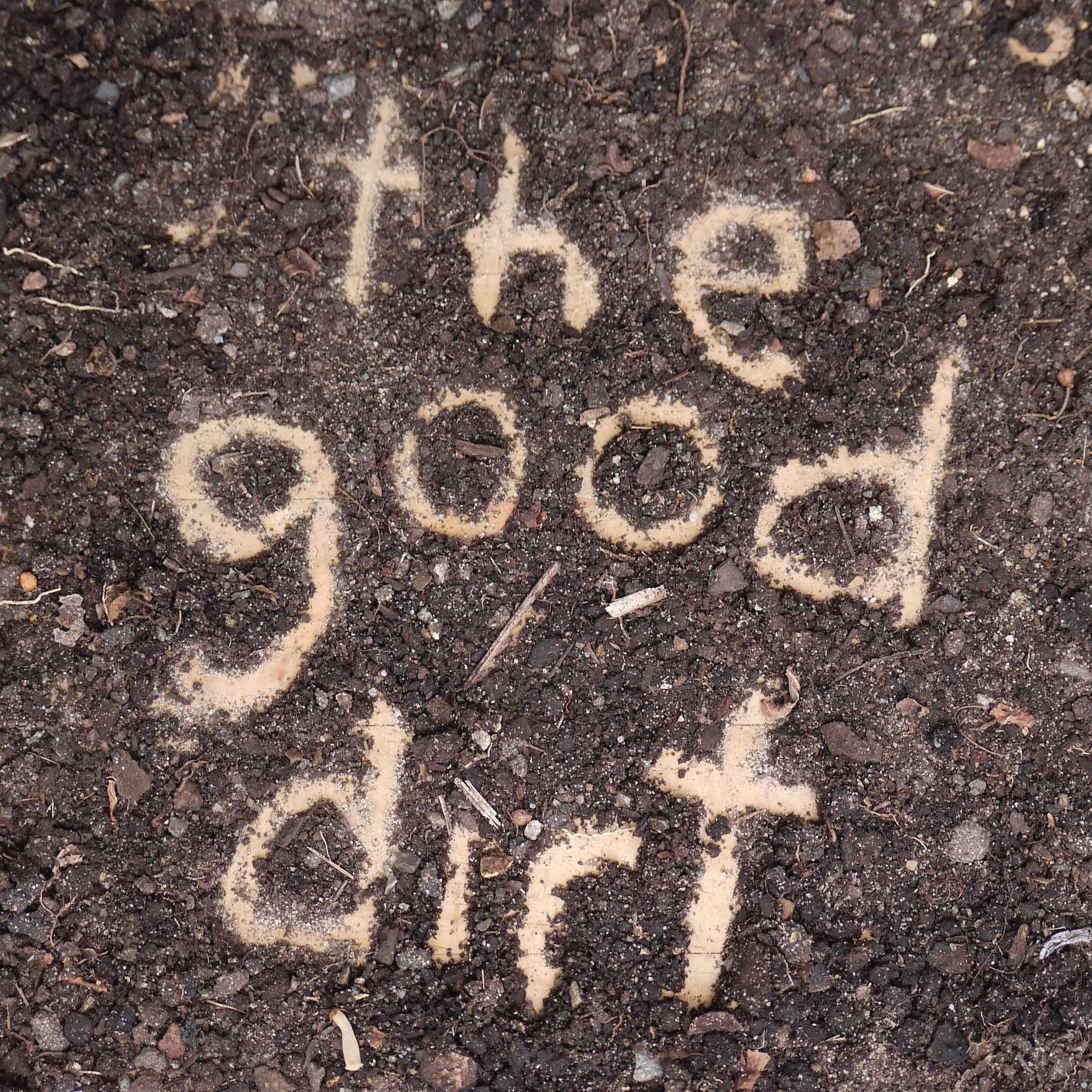Episodes
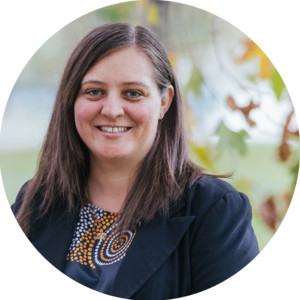
Tuesday Jan 28, 2020
Tuesday Jan 28, 2020
A conversation with Brooke Prentis, Waka Waka woman, Aboriginal Spokesperson for Common Grace, Coordinator of the Grasstree Gathering. Brooke is currently a Senior Fellow at Anglican Deaconness Ministries, Director of PEACEtalks here at Paddington Anglican, and in a delightful piece of news, Common Grace have recently announced that Brooke will be their next CEO, starting in February.
Episode Outline
I. What's the big idea?
Byron chats with Brooke about the difference between being political vs being partisan, arguing that the former is inevitable but that the latter needn't be. Being political in this broad sense is a neutral term to do with the distribution and application of power in society. Being partisan means to take actions that are intended to benefit or advance the agenda of a particular organised political party. People's aversion to being partisan sometimes leads them to seek to avoid being political, but this turns out to be impossible since even the attempt at neutrality is itself a political move, one that upholds the status quo in its various injustices.
Byron and Brooke also consider some of the ways that the current Australian government has been deliberately trying to erode this distinction, trying to subsume everything within the framework of partisan conflict.
II. What's going on?
1. Sydney set to keep wheezing through 'longest period' of bushfire air pollution on record - SBS
- Longing to Breathe - Byron's Advent reflection for Common Grace
- PM Scott Morrison Rejects Calls for More Assistance to Firefighters - SBS
- 'I don't see a contradiction' - Albanese backs coal exports - The New Daily
- Note that the statistics quoted were accurate at the time of recording. At the time of publication, the area in NSW burned by bushfires has increased from 2.7m ha to over 5m ha, with more than double that also burned in other states. Sustained periods of hazardous air quality have also since been experienced in Melbourne, Canberra and many more regional areas.
2. Gondwana burning: the ecological catastrophe hidden by the bushfires - ABC
- Revealed: Monumental NSW bushfires have burnt 20% of Blue Mountains World Heritage Area - Guardian Australia
- Bushfires in the Gondwana Rainforests of Australia - UNESCO
- Note that these statistics were accurate at time of recording. At time of publication, the fires have now burned an estimated 80% of the Blue Mountains World Heritage Area. As for the Gondwana Rainforests World Heritage Area, more than half of those forests, previously too wet to burn at all, have been damaged (perhaps permanently) by the fires.
3. Humpback whale population on the rise after near miss with extinction - Science Daily
- Cashless Welfare Card: Honest Government Ad - Juice Media
5. Australia’s civil rights rating downgraded as report finds world becoming less free - Guardian Australia
6. 'Allow no escapes': leak exposes reality of China's vast prison camp network - The Guardian
- Apology to Australia's Indigenous People: PM Kevin Rudd - Parliament of Australia
- Bringing them Home: Report of the National Inquiry into the Separation of Aboriginal and Torres Strait Islander Children from Their Families: April 1997 - AHRC
III. What do we do?
i. Immediate: Consider air quality: NSW Air Quality Index.
ii. Podcast recommendation: The Eucatastrophe by Joel Harrison and David Taylor.
iii. Film recommendation: Top End Wedding.
iv. More ambitious: #ChangeTheHeart prayer services, called by Aunty Jean Phillips with the help of Brooke Prentis and Common Grace. NB At the time of recording, these services were still some weeks ago. Apologies for the delay, meaning that the opportunity to participate in these services in 2020 has now passed. Check the Common Grace site for more information and to ensure you hear about next years' services.
Credits
- Host - Byron Smith
- Producer - Simon Bunstead
- Sound - Byron Smith
- Music - Francis Preve

Tuesday Nov 26, 2019
Tuesday Nov 26, 2019
A conversation with Adam Wood, a secondary school teacher at a large well-known private school in Sydney, teaching Legal and Christian Studies. Adam used to be a corporate lawyer, until he decided to use his powers for good. He is married to Emma and they have two small children.
Episode Outline
I. What's the big idea?
Byron chats with Adam Wood about intergenerational injustice, particularly as it relates to climate disruption. As a complex, global, cumulative crisis with a significant lag time between combustion and climate disruption, it is easy for each generation to enjoy the immediate benefits of burning fossil fuels while passing on to coming generations the full costs of that combustion. This creates a fundamental structural injustice by creating a gap between the beneficiaries of an activity and those who suffer from its consequences. How do we connect empathetically and ethically with those downstream from us, whose future suffering or flourishing is dependent upon our choices today?
Byron reads from the epilogue to Last Chance to See by Douglas Adams and Mark Carwardine (1990).
II. What's going on?
1. NSW laws proposed to prevent scope 3 being considered in mining approvals - National Resources Review
2. This is not normal: what's different about the NSW mega fires - SMH
- Ex-emergency chiefs sound climate alarm - Canberra Times
- Former fire chiefs warn Australia unprepared for escalating climate threat - The Guardian
3. Australians worry about the environment but are wary of electric cars - SMH
4. 'Climate Strike' named official word of the year - Independent
III. What do we do?
i. Immediate: Donate to help people fighting and affected by the bushfires. Also to support wildlife rescue.
ii. Immediate: Consider committing to making your next (new) car purchase an EV. Use an online map to check what range you actually need in your regular life.
iii. Book recommendation: The Prophetic Imagination by Walter Brueggemann
iv. More ambitious: identify a young person in your life and ask them how they feel about climate disruption, being emotionally available to really hear their answer.
Credits
- Host - Byron Smith
- Producer - Simon Bunstead
- Sound - Byron Smith
- Music - Francis Preve
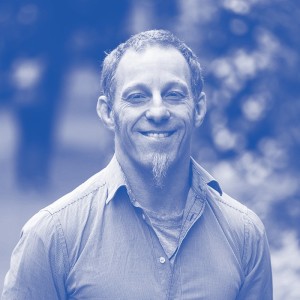
Friday Nov 15, 2019
Friday Nov 15, 2019
A conversation with Dr Mick Pope, who has a PhD in Meteorology from Monash University and is completing a Masters in Theology at the University of Divinity. He is a lecturer in Meteorology at the Bureau of Meterology, Professor in Environmental Theology at Missional University, and a member of the Centre for Religion and Social Policy (RASP). Mick is the author of three books on climate and faith.
- A Climate of Hope: Church and Mission in a Warming World, co-authored with Claire Dawson
- A Climate of Justice: Loving your Neighbour in a Warming World
- All Things New: God’s plan to renew our world
Byron and Mick are moderators of the Australian Christian Environmental Group on Facebook. Mick also has an author's page on Facebook.
Episode Outline
I. What's the big idea?
Byron chats with Mick Pope about the Anthropocene, the proposed new geological epoch named after the most dominant force shaping the planet: anthropoi, i.e. us humans. They explore the history of the term and the debates over its extent, as well as whether it is the right term to describe the recent transformation of the planet's surface and ecosystems. Finally, they ask how this concept helps to illuminate the present moment and contextualise so many of the news stories we seek to understand and respond well to.
Mick mentioned the following two books:
- Timefulness: How Thinking Like a Geologist Can Help Save the World by Marcia Bjornerud
- The Human Planet: How we created the Anthropocene by Simon L. Lewis and Mark Maslin
II. What's going on?
1. Climate Crisis: 11,000 Scientists warn of 'untold suffering' - The Guardian
- Original paper: World Scientists' Warning of a Climate Emergency
2. Bad ancestors: does the climate crisis violate the rights of those yet to be born? - The Guardian
3. Bank of England boss says global finance is funding 4C temperature rise - The Guardian
- Six Degrees videos - National Geographic
4. Scott Morrison slams environmental groups 'targeting' businesses with 'selfish' secondary boycotts - ABC
- Scott Morrison's maiden speech to federal parliament (14th Feb 2008) - Hansard
- We need an apartheid-style boycott to save the planet - The Guardian
III. What do we do?
i. Immediate and simple: Join one or more of these - Frontline Action on Coal; Stop Adani; Market Forces; Extinction Rebellion; Common Grace; Seed Indigenous Youth Climate Network; Lock the Gate, or various others.
ii. Book recommendation: All Things New: God's plan to renew our world by Mick Pope
iii. More ambitious: join one of the groups mentioned in (i) and get involved in their actions, activities or administration.
Bonus recording: All Things New book launch - PEACEtalks event with Byron Smith, Hwvar Khoshnow, Kylie Beach and Mick Pope recorded at Paddington Anglican Church, 18th November 2017.
Credits
- Host - Byron Smith
- Producer - Simon Bunstead
- Sound - Byron Smith
- Music - Francis Preve
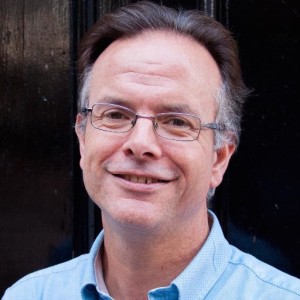
Thursday Jul 04, 2019
Thursday Jul 04, 2019
A conversation with Prof David Clough, Professor of Theological Ethics at the University of Chester and who has just finished a term as President of the Society for the Study of Christian Ethics. Prof Clough co-wrote Faith and Force: A Christian Debate about War (2007), debating just war and pacifism in a 21st century context, and has recently completed the landmark two-volume monograph On Animals (2012, 2018), on the place of animals in Christian theology and ethics. He is the founder of CreatureKind, a project aiming to engage Christians with farmed animal welfare, and Principal Investigator for a three-year UK Research Council funded project on the Christian Ethics of Farmed Animal Welfare in partnership with major UK churches and Compassion in World Farming. He is a Methodist lay preacher and has represented the Methodist Church on national ecumenical working groups on the ethics of warfare and climate change.
Episode Outline
I. What's the big idea?
Byron chats with David Clough about humans and other animals, exploring David's recently completed two-part text On Animals. For the last couple of months, Prof Clough has been on a book tour promoting this new work and sharing the ideas and arguments in it. The first part, published in 2012 is "a project in systematic theology: a rigorous engagement with the Christian tradition in relation to animals under the doctrinal headings of creation, reconciliation and redemption and in dialogue with the Bible and theological voices central to the tradition." The second part, which came out a few months ago, is a theological ethics, exploring the implications of such a theology in our contemporary context, where there exists an abyss between the beliefs about animals Christians are committed to and widespread contemporary practices, especially in the food industry. In it, Clough "surveys and assess the use humans make of other animals for food, for clothing, for labour, as research subjects, for sport and entertainment, as pets or companions, and human impacts on wild animals".
II. What's going on?
1. In first, Agriculture Ministry admits to cruel conditions on animal transports - Times of Israel
2. Extinction Nation: Australia's biodiversity crisis - ABC Four Corners, Monday 24th June
- Dark Emu by Bruce Pascoe
3. The City of Sydney has officially declared a climate emergency - SBS
- Extinction Rebellion Australia
- Support for Extinction Rebellion soars after Easter protests - The Guardian
- Christian Ethics, Climate Emergency and Nonviolent Direct Action - Ethicists Without Borders
- Climate protesters storm Garzweiler coalmine in Germany - BBC
- Pope Francis declares 'climate emergency' and urges action - The Guardian
- Governments of Scotland, Wales, Ireland, Canada, France and the UK Parliament, along with dozens of cities and hundreds of local councils around the world, all declare a climate emergency - various sources
4. 'No faith in coal': Religious leaders urge Scott Morrison to take climate action - The Guardian
- Full text of the open letter and list of signatories - ARRCC
- Laudato si': On Care for Our Common Home - Encyclical letter by Pope Francis
III. What do we do?
- Immediate and simple: reduce animal products and source more ethical products. See Creaturekind for more information and resources.
- Book recommendation: On Animals: Volume I - Systematic Theology; On Animals: Volume II - Theological Ethics.
- More ambitious: DefaultVeg, changing the hospitality and catering practices of churches and other organisations.
Bonus lecture: Eating More Peaceably: The Christian Ethics of Eating Animals - PEACEtalks lecture by Prof Clough, recorded at Paddington Anglican Church, 29th June 2019, immediately after this episode.
Credits
- Host - Byron Smith
- Producer - Simon Bunstead
- Sound - Byron Smith
- Music - Francis Preve
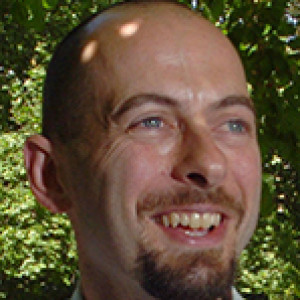
Friday Jun 14, 2019
Friday Jun 14, 2019
Rev Dr Jason John is a eco-theologian working for Uniting Earth. With a background studying zoology, environment and theology, Jason's PhD explored the interconnections between evolution, ecology, environmentalism and faith. He has been a university chaplain, an environmental officer, a researcher and a congregational minister. He has started a couple of ecofaith outdoor worship communities with the Uniting Church, has written three books, hosted a radio show that ran for over 100 episodes (Ecofaith on the Air), has a few talks on his YouTube channel and is an active part of Common Grace's Creation and Climate Justice team.
He lives with his family on the edge of a forest near Bellingen on the NSW north coast.
Episode Outline
I. What's the big idea?
Byron chats with Jason John about some of the tricks our brain plays on us when we get news we don't like, a phenomena psychologists call identity protective cognition. When we come across new information that threatens our sense of self or the narratives we use to orient ourselves in the world, we all have a defensive tendency or bias to somehow render that information toothless. Whether through ignoring it, reinterpreting it into a less threatening form or outright denying it, this identity protective cognition forms a series of patterns that appear whenever we stumble upon certain kinds of bad news.
When it comes to the climate crisis, there are multiple ways that our planetary diagnosis undermines some of the common basic assumptions we make about ourselves and our society. So our identity protective cognition gets to work making sure we find excuses not to take this diagnosis too seriously.
What can we do about this?
II. What's going on?
1. World Environment Day and existential climate risk
- "Happy" World Environment Day - by Jason John
- Existential climate-related security risk - by David Spratt & Ian Dunlop
- Human civilisation faces "existential risk" by 2050 according to new Australian climate change report - CBS
- Stronger air pollution standards needed to protect poorer Australians - ACF
2. Of mice and misdirection: attributing responsibility in the recent election
- Full text of Byron's commentary.NB The discussion briefly references dozens of stories, which can be made available upon request, but would excessively clutter these notes to include them all.
3. Adani Carmichael coal mine update
- Adani's numbers don't add up - Bloomberg
- Explaining Adani: Why would a billionaire persist with a mine that will probably lose money? - The Conversation
4. National Reconciliation Week and taking Australia to the UN Human Rights Commission
- Common Grace's series for National Reconciliation Week, including Byron's post on stolen wages.
- Torres Strait Islanders ask UN to hold Australia to account on climate 'human rights abuses' - The Conversation
Poem: The 'C' Word
III. What do we do?
- Immediate and simple: Our Islands, Our Home - A petition for Torres Strait Islander justice case, discussed in the final story.
- Film recommendation: 2040. This new Australian documentary is currently sitting at 100% fresh on film review aggregator Rotten Tomatoes.
- More ambitious: Read Common Grace's series for National Reconciliation Week and commit to taking some of the suggested actions.
Credits
- Host - Byron Smith
- Producer - Simon Bunstead
- Sound - Byron Smith
- Music - Francis Preve
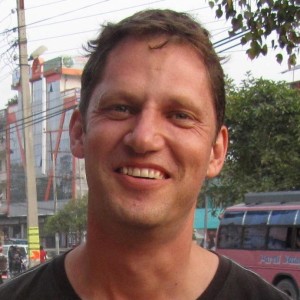
Tuesday May 21, 2019
Tuesday May 21, 2019
Election special! With Ben Thurley. Ben is CEO of International Nepal Fellowship Australia. He has spent years working in Nepal with villages facing poverty, harsh and remote conditions in the Himalayas, and worsening climate impacts. He is also a keen and insightful observer of Australian politics and he joins Byron Smith for a discussion that remains timely ever after the election.
This episode with Ben Thurley was recorded a month or so ago, when the government's budget was still merely a campaign document, but the discussion has become all the more relevant after the recent election result. Given the election context, this episode is more directly party political than usual as we discuss budgets and policies. But with a new government freshly elected, it is worth spending some time considering their priorities and in particular casting a critical eye over their climate policy.
Episode Outline
I. What's the big idea?
The Overton Window is a concept in political theory that names the space (or window) of acceptable thought when it comes to a given issue or area. There can be competing ideas within the window, but any ideas falling further to either side out of it are deemed too radical or simply ludicrous. Crucially, that window is not fixed...
Ben and Byron discuss the ways that we can identify this window, notice it moving and even contributing to pushing or pulling it in situations where what is necessary for justice falls outside it.
II. What's going on?
In the main part of this episode, we discuss first the Coalition's proposed budget - what it prioritises, what it omits, the message it is trying to send, the assumptions that drive it - and then explore the major parties' climate policies. Here are some relevant links.
2019 Australian budget overview
$185m of political theatre: the opening and closing of Christmas Island
Ending Australia's Green Climate Fund contribution
Why the claimed surplus is a mirage
Those with high income are the biggest winners in this budget
Foreign aid cut for sixth year in a row
Are the Coalition good economic managers? (FB post by Byron)
III. What do we do?
Renew Economy - Australian energy and climate news and analysis
Climate Code Red - Climate news and analysis
Inside Climate News - International climate news
Climate activist organisations:
- 350.org Australia
- Extinction Rebellion Australia
- Front Line Action on Coal
- Australian Conservation Foundation
- Greenpeace Australia Pacific
- Australian Religious Response to Climate Change
- Common Grace: Climate and Creation Justice
Book recommendation: Duncan Green, How Change Happens
Credits
- Host - Byron Smith
- Producer - Simon Bunstead
- Sound - Byron Smith
- Music - Francis Preve
PS We're still working on getting sound quality optimised. Once again an apology: this time Byron is a bit too soft. Next time Gadget...
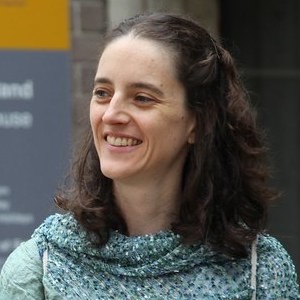
Thursday Apr 18, 2019
Thursday Apr 18, 2019
Episode Five: A Dying River?
"Let justice roll on like a river, righteousness like a never-failing stream!"
- Amos 5.24
What does it mean when a river stops flowing? Australia's longest, largest, most crucial and most controversial river system is the Murray-Darling. Winding its way across thousands of kilometres and draining a basin one seventh of the continent in area, the waters of the Murray Darling have sustained many Aboriginal nations for thousands of years, are now also the lifeblood of dozens of towns, irrigate a large chunk of Australian agriculture and are home to a broad diversity of species. Yet this great system is polluted, parched and partitioned: its fish dying, its flow interrupted, its management hotly disputed.
In this episode, we depart somewhat from our usual format to explore the causes of and challenges resulting from a river in crisis, as well as what might be done about it.
Byron Smith talks with Dr Miriam Pepper, Researcher with National Church Life Survey, Research Fellow at Charles Sturt University, Sessional Lecturer at United Theological College and former host of Ecofaith on the Air. For the last five years, Miriam has been part of a fact-finding team with the Uniting Church listening to communities in different parts of the Murray-Darling Basin, seeking understanding and a deeper care.
Note: unfortunately, the sound quality of this episode is lower than hoped for. Future recordings will all be made on better equipment and with some important lessons learned.
References mentioned in the episode, and further reading:
Murray-Darling Royal Commission Report (full report)
Investigation of the causes of mass fish kills in the Menindee Region NSW over the summer of 2018-2019 (Report from Australian Academy of Science)
Murray-Darling basin royal commission report find gross maladministration
Aboriginal voices are missing from the Murray-Darling Basin crisis
First Nations groups unite to call for Murray-Darling Royal Commission
After the Royal Commission, what next for Murray-Darling Basin law reform?
The fury of the Murray-Darling royal commission finding has fallen on deaf ears
New South Wales government largely culpable for fish kill, report finds
Australia gets UN to delete criticism of Murray-Darling basin plan from report
The Good Dirt (Facebook page)
Credits
- Host - Byron Smith
- Producer - Simon Bunstead
- Sound - Byron Smith
- Music - Francis Preve
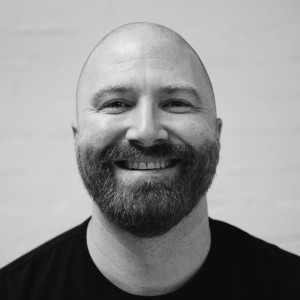
Friday Mar 15, 2019
Friday Mar 15, 2019
We're back! After a summer hiatus that lasted a little longer than expected, Byron Smith talks with Josh Dowton, associate pastor at Northside Baptist Church, New Testament scholar and permaculturist.
Episode Outline
I. What's the big idea?
The epistemic priority of the oppressed is a fancy way of saying that in seeking to understand any situation of conflict, we ought to listen first and most carefully to the weaker party, because their voice is more easily dismissed, undermined or sidelined.
An opinion piece giving an overview of some of those who rushed to defend George Pell after his conviction for crimes of sexual violence against teenagers: The inconsistencies of George Pell's defenders just display their power.
II. What's going on?
Story #1: 26th January, #changethedate vs #changethenation vs #changetheheart
Why I no longer support #changethedate
#Changetheheart prayer services for 2019
The Killing Times (new Guardian series)
Lifeline: 13 11 14
Story #2: Developments in the coal industry
Glencore moves to cap global coal output after investor pressure on climate change
Court rules out Hunter Valley coalmine on climate change grounds
Germany to close all 84 of its coal-fired power plants, will rely primarily on renewable energy
The Green New Deal is here, and everyone has something to say about it
Story #3: School Strike for Climate
Map of over 1,800 global climate strike events
Young climate strikers can win their fight. We must all help (George Monbiot)
Greta Thunberg's speech to the UN at COP24
MPs debate climate after school strike - but only a handful turn up (UK)
Story #4: Disappearing insects
Plummeting insect numbers 'threaten collapse of nature'
Decline in bogong moth numbers could have catastrophic effects in the Australian Alps
III. What do we do?
School strike for climate (Australian events)
Exclusion & Embrace: A Theological Exploration of Identity, Otherness, and Reconciliation by Miroslav Volf
The Bee Friendly Garden: Easy ways to help the bees and make your garden grow by Doug Purdie
Thu 28th March PEACEtalks at Paddington Anglican: Heads in the Sand: Australian climate politics and the church with Byron Smith
Sat 30th March at Small Boat, Big Sea in Fairlight
The Good Dirt (Facebook)
Credits
- Host - Byron Smith
- Producer - Simon Bunstead
- Sound - Byron Smith
- Music - Francis Preve
PS There is one reference towards the end to a "previous episode" with Dr Miriam Pepper discussing the Murray Darling river system. That was a mistake - Miriam will appear in the next episode (#5)! Stay tuned...
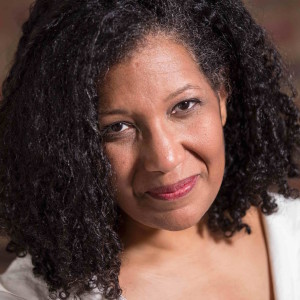
Saturday Dec 22, 2018
Saturday Dec 22, 2018
In our third episode, Lisa Sharon Harper - US author, activist, faith leader - talks with Byron Smith about her work helping people from many backgrounds journey towards justice and wholeness. Amongst numerous other initiatives, recently Lisa has been particularly involved with Freedom Road, whose tagline is "We consult, coach, train and design experiences that help groups in multiple sectors do justice in just ways." Freedom Road Podcast with Lisa.
Episode Outline
I. What's the big idea?
Core Spiritual Lies are false ways we have learned to see ourselves with respect to God, others and the land. If we can unearth and articulate such false beliefs, noting the ways that they are expressed in our culture and power structures, then we may be able to respond with spiritual truths that can liberate and heal.
• Uluru Statement from the Heart
• Tony Abbott: 'Nothing but bush'
II. What's going on?
Story #1: Australia's authority in the Pacific 'being eroded by refusal to address climate change'
Story #2: An example of nonviolent direct action against a coal train in NSW. Livestream video of that action.
III. What do we do?
Lisa Sharon Harper, The Very Good Gospel: How everything wrong can be made right (book)
Frontline Action on Coal (Facebook)
The Good Dirt (Facebook)
Credits
- Host - Byron Smith
- Producer - Simon Bunstead
- Sound - Lewis Best
- Music - Francis Preve
PS As with episode two, this conversation was recorded a few months ago, so a couple of the references may be somewhat dated, though the issues discussed are still very much live. While the Pacific Forum may have wrapped up a while back, the Australian government largely reprised a similar spoiler role at the recent UN climate negotiations in Poland.
PPS Since this was one of our first recordings, the sound quality is somewhat lower than I'd hoped. In particular Lisa is louder than Byron. Apologies.

Friday Dec 14, 2018
Friday Dec 14, 2018
In which Brooke Prentis - Waka Waka woman, Aboriginal Christian leader, Grasstree Gathering coordinator, Common Grace spokesperson - kicks Byron Smith's backside in trivia. And of course, together they explore some major contemporary issues facing those living in Australia and beyond, seeking to connect the dots and unearth the stories that matter.
Episode Outline
I. What's the big idea?
"Just world belief" is the idea that, fundamentally, the world is just, that we each get (more or less) what we deserve, that success is typically earned - and so is failure. It is a foundational conviction for many people, but has some disturbing consequences...
• Milgrim Lerner psychology experiment studying victim-blaming
II. What's going on?
Story #2: Yatala Prison Inquest: Guards refused to cooperate over Wayne Morrison death, court told
Story #3: No Gatton Women's Prison
Story #4: Australia relationship with Pacific on climate change 'dysfunctional' and 'abusive'
Story #5: Rising CO2 levels could push 'hundreds of millions' into malnutrition by 2050
Story #6: Capilano, Australia's biggest honey producer, and supermarkets accused of selling 'fake' honey
III. What do we do?
Bruce Pascoe, Dark Emu (book)
Common Grace (website)
Common Grace (Facebook)

